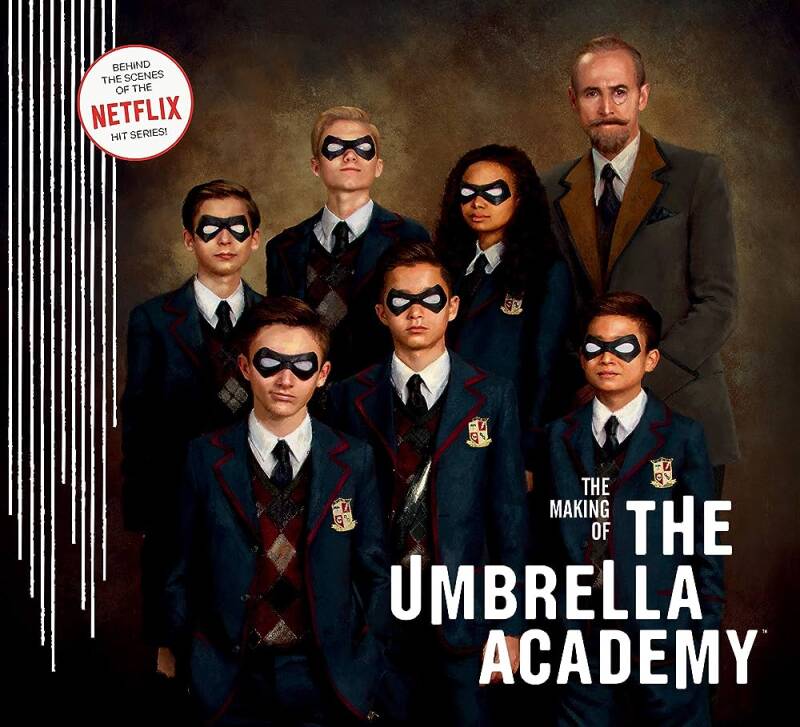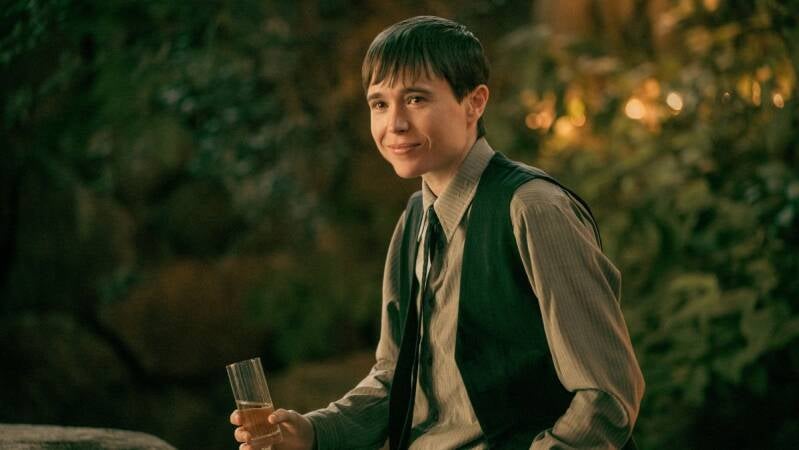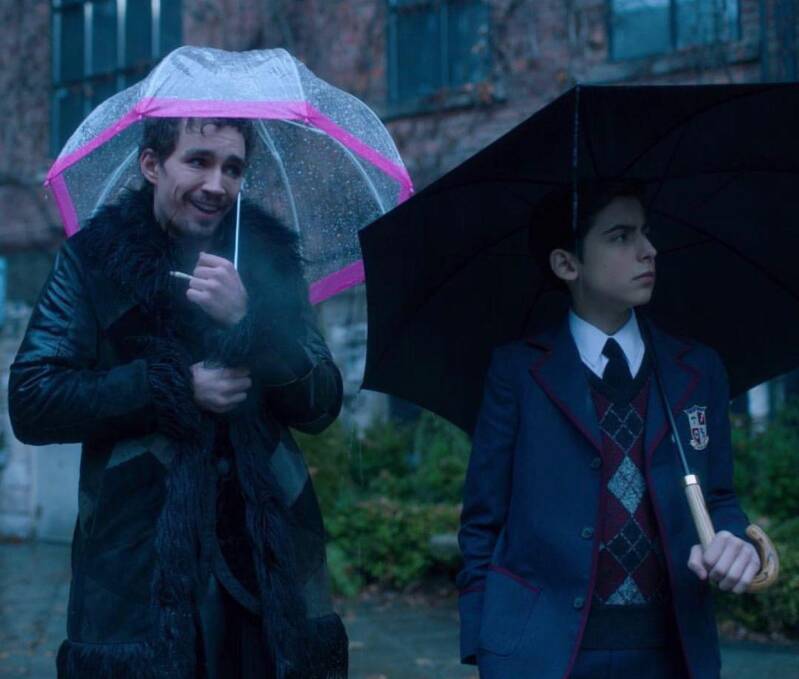
This Netflix TV show is adapted from Gerard Way of My Chemical Romance's Gerard Way. It's best described as a dark comedy, and has all of the zany, creative flair that I would expect from him. I've always been picky with TV shows, as many are dragged longer than their storylines should permit and lose traction; but in The Umbrella Academy, the worldbuilding and intersecting plots between characters are invigorating and paced appropriately, making it my favorite comfort TV series.
Rather than delving into specifics from the different series, I want to make this post short and sweet, as I would much prefer to encourage all readers to watch it on their own. The first couple episodes are slow and very fever-dream like. You'll quickly understand the premise of the show and what it entails, as the pilot jumps in with little prelude. Forty-three women gave birth simultaneously at noon on October 1, 1989, although none had shown any signs of pregnancy until labor began, all from different places around the world. Seven of those children were successfully adopted by an eccentric billionaire named Reginald Hargreeves (who is arguably one of the worst characters in the show). He then raised the children to harness the special powers they exhibited, making for a stranger, more intriguing superheroes than in other pieces of media I've seen.
I'm most inclined to talk about the arc of one of my favorite characters: Viktor.

Viktor, at one point, was my least favorite out of the siblings. Luther quickly stole that role after some time, and through season 3, Allison's development was also her deterioration in my eyes, despite the evolution making sense given her foundations in season 1. Viktor was repressed emotionally and otherwise, and was very disinteresting for me to connect with initially. While I felt more sympathy for him than I did for Luther, the blandness of his being sometimes made it easy for me to forget that he was technically the main character. By the end of season 1, the exploration of his powers and his confinement during his life captured my attention, as I saw the connections with the repression to his identity and sexuality being addressed in season 2.
Writing LGBTQ characters can be difficult. It's hard to write a storyline involving a queer character exploring their identity, while also not feeling like the story is pandering towards their LGBTQ audience. Too many times I've seen what is supposed to be a "coming to terms" sort of trope for a queer character that harbors strong negative emotions through their journey; and while these types of feelings are commonplace among the queer community, this aggressive trope gets tiring. However, the slow build of Viktor's realization, and his gradual flourish as he discovers himself, is truly refreshing. Among myself and queer friends, coming to terms with your sexuality is scary, but freeing, especially when being repressed for so long. There is a layer of prejudice that needs to be stripped away in those of us that grew up in disconfirming spaces, but seeing Viktor's transformation, while slight, was comforting and well done.

I would like to give honorable mentions to my two other favorites, Klaus and Five. While I love all of the siblings genuinely for their roles and symbiotic relationships, the dynamic of these two is impenetrable to me, while also being iconic, for lack of better words. Klaus has the dramatic and flamboyant flair that adds the quirk to the show, while Five's ironic cynicism and borderline crazed murderous tendencies wrapped up in a 14-year-old bow that offer much comedic relief in a dark comedy.
Add comment
Comments